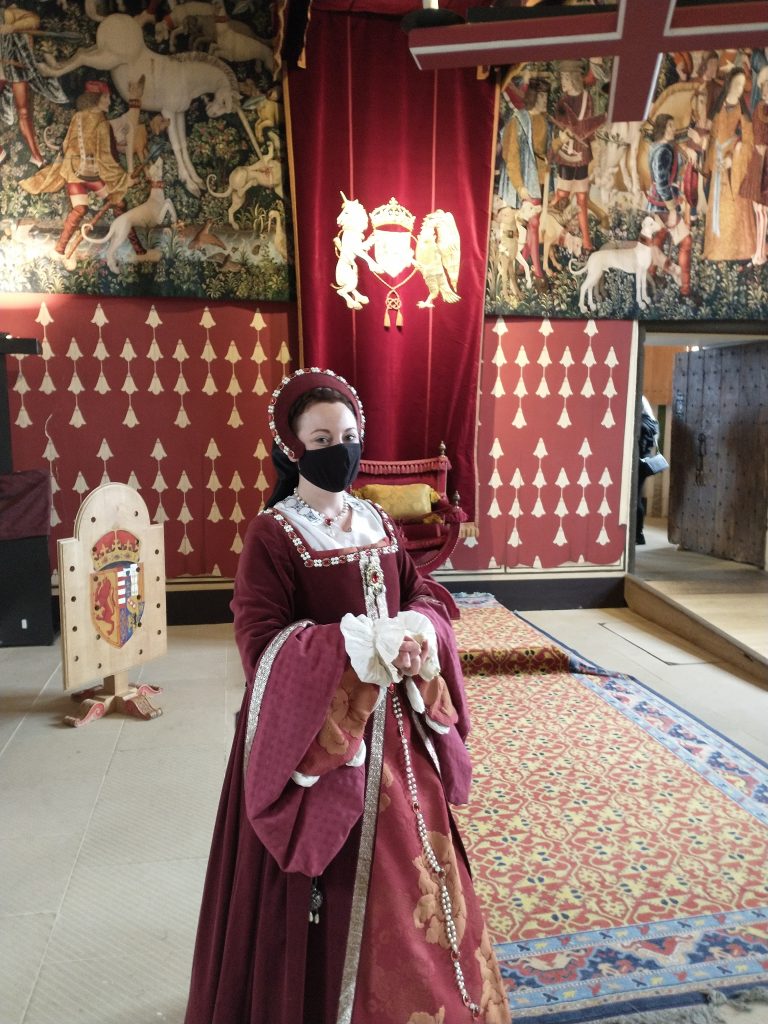
On a recent visit to Stirling Castle I met La Belle Écossaise hovering in Queen Mary of Guise’s chambers. She was not as discrete as one would expect from a lady in waiting and even told me that the queen holds her most intimate audiences in her bed chamber, where she chats from behind a screen as she washes and dresses. The queen, she said, does not sleep there but in a much smaller room up a private staircase. I was wild with curiosity to be shown the secret room but on this The Beautiful Scotswoman’s (doesn’t it sound much better in French) lips were sealed.

My character Will (in The Conversos) also has sight of La Belle Écossaise while he is a galley slave on the ship that transports the infant Mary Queen of Scots to France. La Belle Écossaise was amongst the wee queen’s retinue, even though as she herself told me, she could not speak French. Yet she is quite the demanding lady as Will observes.
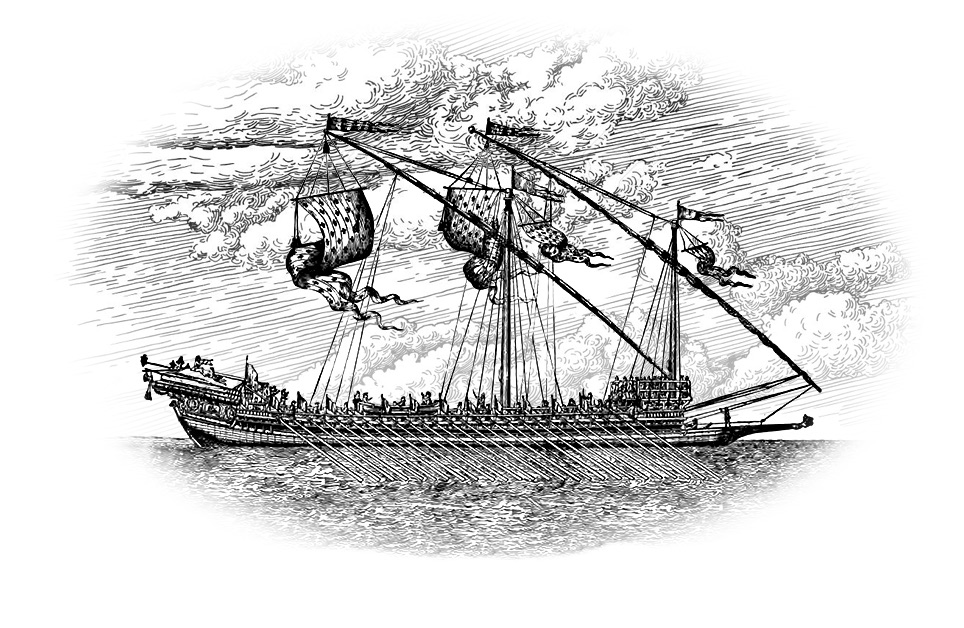
After three days of riding at anchor during the storm La Belle Écossaise is seen arguing with the Captain. ‘It is too much, this swinging aimlessly in the sea. Take us ashore.’
The captain shrugs, Will doubts if he even understands what she says since she speaks in Scots. A gust of rain sends her scurrying undercover.
She’s back the next day demanding, ‘let me off this boat immediately. I must repose myself, and the children too.’
The captain evidently does understand Scots for he bows low saying, ‘I give you the choice my lady. You can either stay on board, or leave and drown.’
She stands for a moment clearly not believing what she’s heard, then the ship lurches rocked by a large wave. She staggers and is only saved from falling overboard by Logie who has appeared in time to catch her. He escorts her below, and Will can see she has much to say.
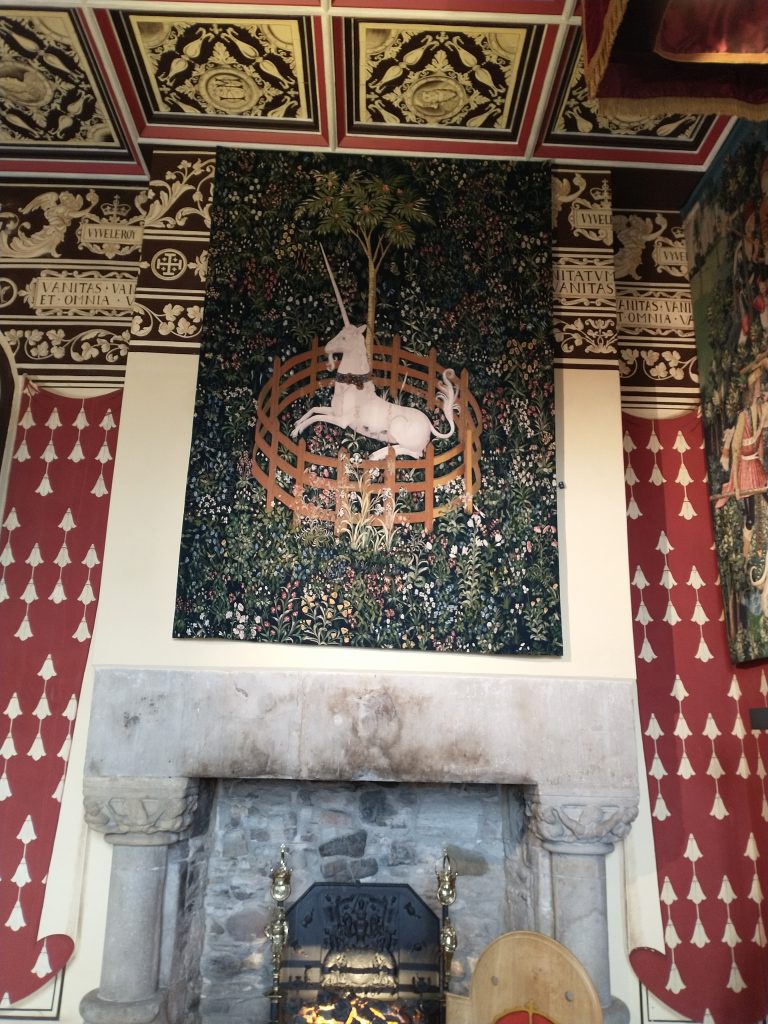
Some remarkable restoration work has been carried out at Stirling Castle and the rooms are bright with colour, the tapestries have been recreated based on what would have hung there during the time of James V and Mary of Guise. The symbolism is everywhere as powerful images were used to convey the king’s droit de seigneur. The unicorn above is sign of purity and strength.
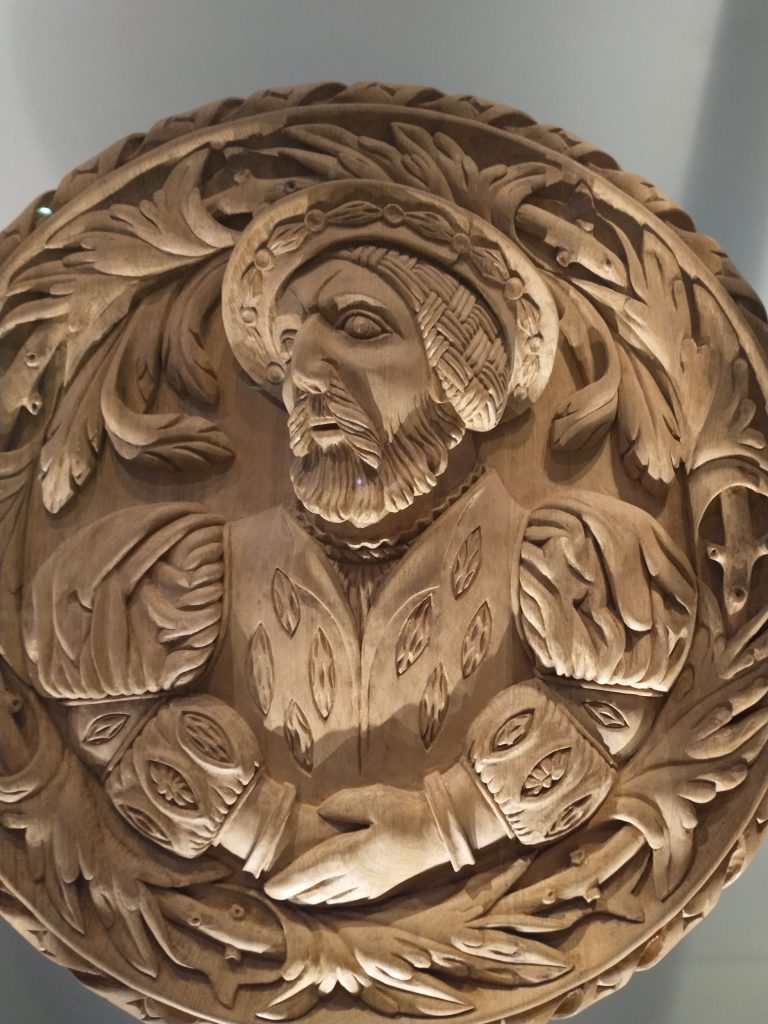
Other restoration work includes the carved heads found on ceilings – and a replica of every known head has been hand carved in oak and then painted after the worn originals were studied in detail. The imagery and choice of heads including Julius Caesar is again all about underlining James’s power as king.
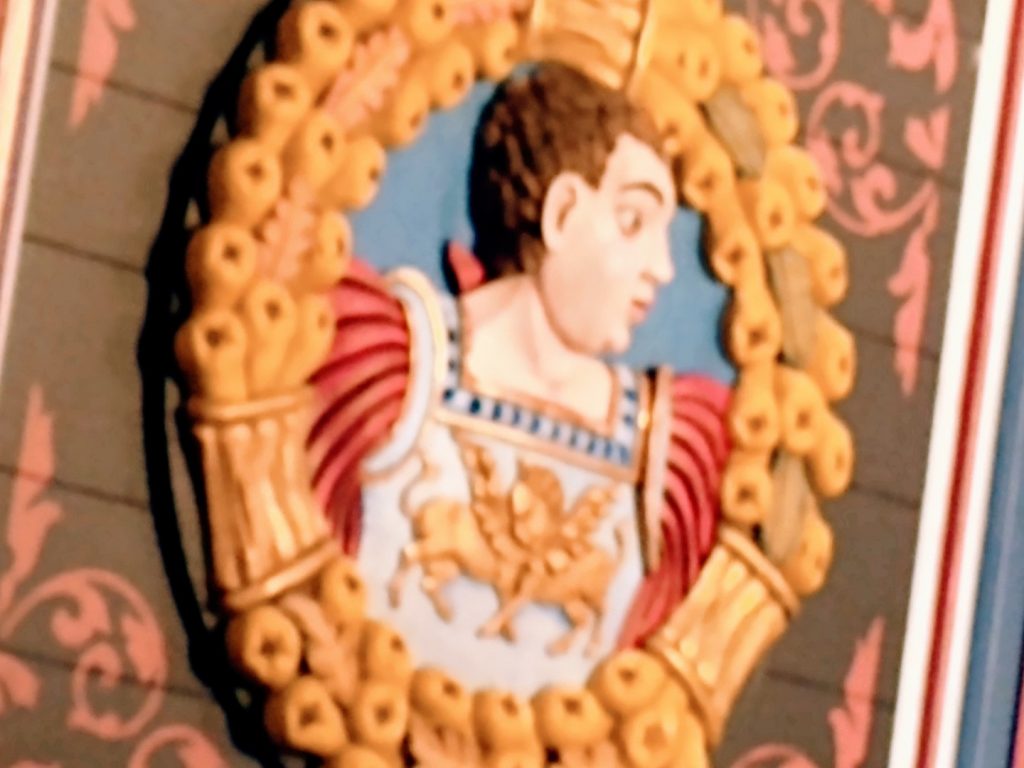
Outside the block which contained the Great Hall has been magnificently restored. It was used (and rather abused ) by the army for many many years, and they inserted sash windows, removed others and cut holes in wall.
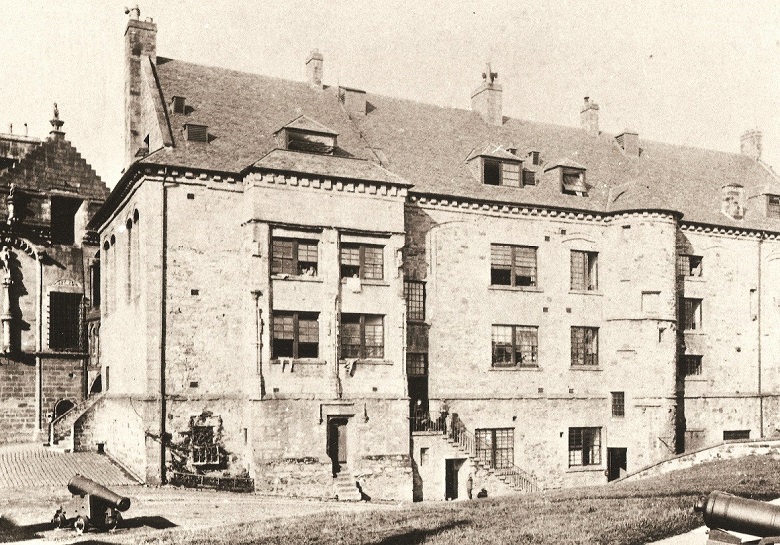
Now repaired and painted in ochre mixed with lime, as it would have been when La Belle Écossaise walked these courtyards, giving a soft golden hue – and the gold confirmed the king’s wealth. It’s fascinating to see the contrast with how faded the rest of the buildings are.
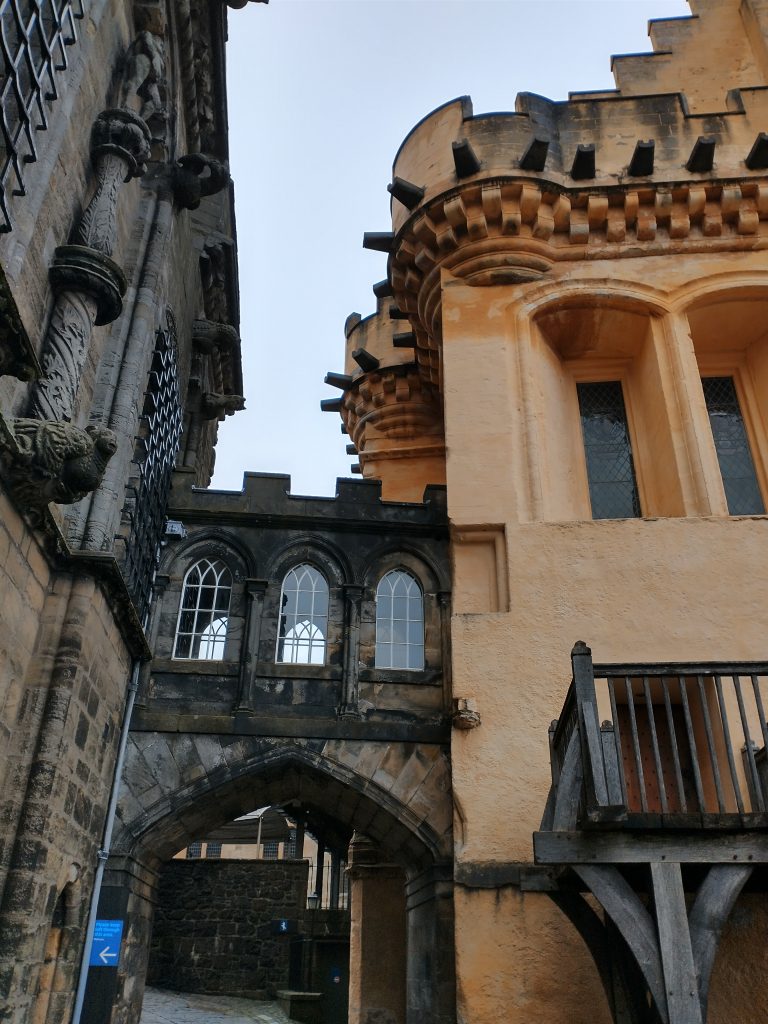
The statutes which line the outside walls would also once have been colourfully painted. The castle is a dull place nowadays in comparison to its one time splendour.
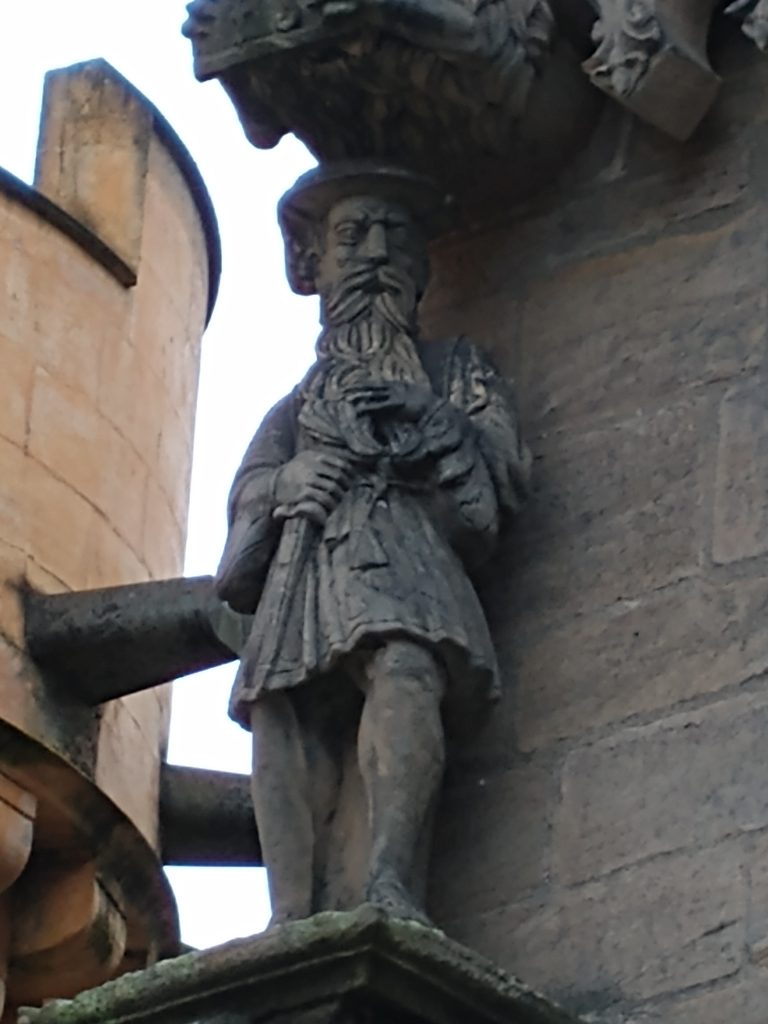
As for La Belle Écossaise she was Lady Janet Fleming who caught the attention of King Henri II of France while she was in attendance on the infant Mary Queen of Scots – despite her lack of French… but then it wasn’t her language skills the king was interested in.
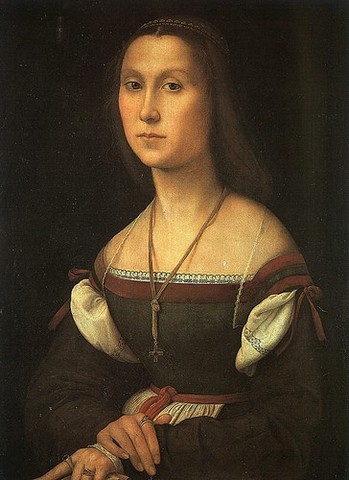
She had a son by him, but was decidedly indiscrete about it which led to the Queen of France, Catherine de Medici, and the king’s mistress, Diane de Poitiers, uniting in their dislike and arranging for Lady Fleming to be shipped back to Scotland, without her son. The rather unkind nickname of The King’s Whore was bestowed upon her. The king however did make sure this son was well provided for.
Ps If you are in Scotland and only have time to visit one castle then make it Stirling Castle – the restoration is remarkable and gives a fantastic sense of time and place …and the actors are a lot of fun.
Ref: Mary Queen of Scots by Antonia Fraser
The Seton Chronicles by V.E.H. Masters

